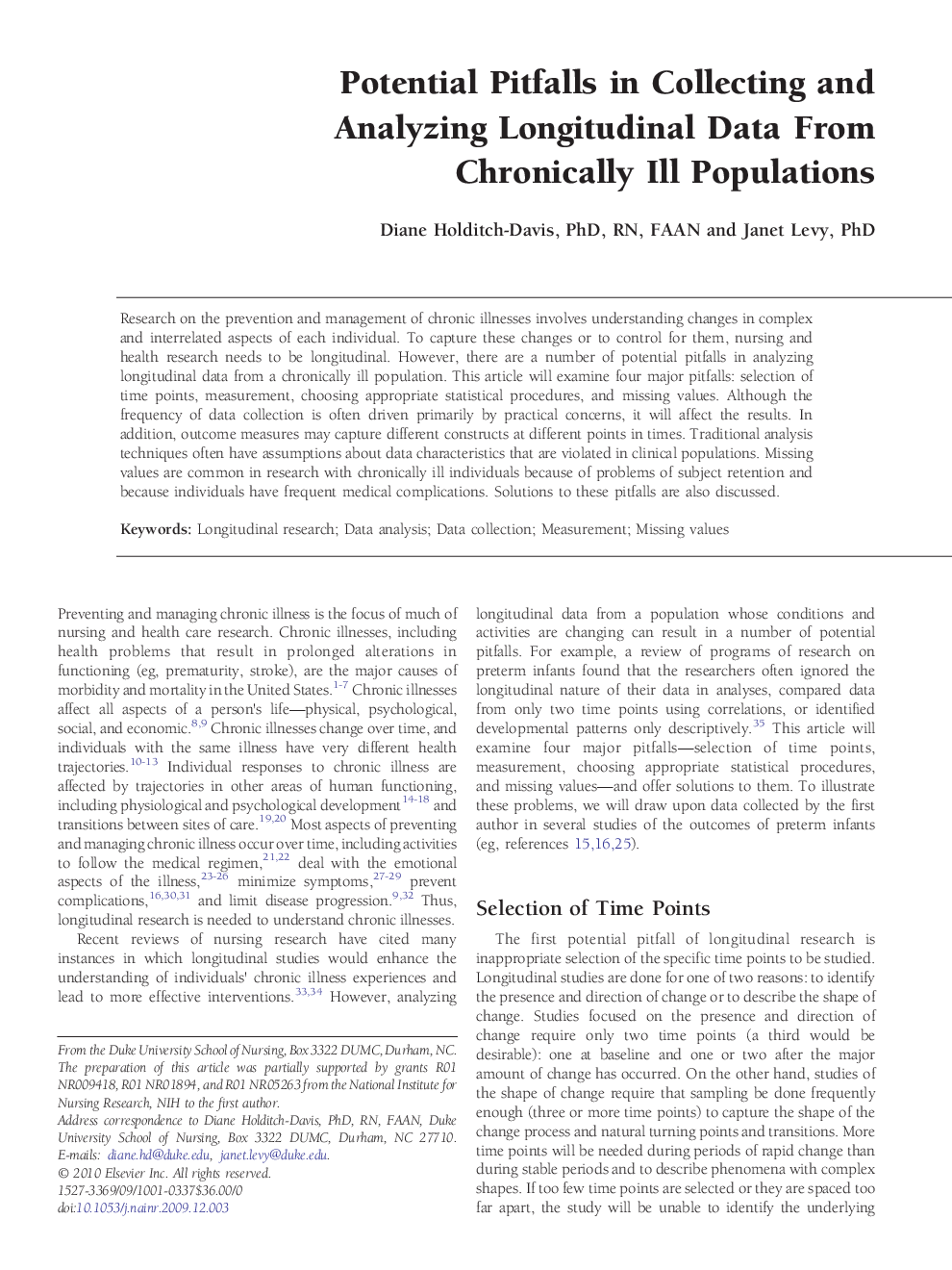| Article ID | Journal | Published Year | Pages | File Type |
|---|---|---|---|---|
| 2673779 | Newborn and Infant Nursing Reviews | 2010 | 9 Pages |
Abstract
Research on the prevention and management of chronic illnesses involves understanding changes in complex and interrelated aspects of each individual. To capture these changes or to control for them, nursing and health research needs to be longitudinal. However, there are a number of potential pitfalls in analyzing longitudinal data from a chronically ill population. This article will examine four major pitfalls: selection of time points, measurement, choosing appropriate statistical procedures, and missing values. Although the frequency of data collection is often driven primarily by practical concerns, it will affect the results. In addition, outcome measures may capture different constructs at different points in times. Traditional analysis techniques often have assumptions about data characteristics that are violated in clinical populations. Missing values are common in research with chronically ill individuals because of problems of subject retention and because individuals have frequent medical complications. Solutions to these pitfalls are also discussed.
Related Topics
Health Sciences
Medicine and Dentistry
Perinatology, Pediatrics and Child Health
Authors
Diane PhD, RN, FAAN, Janet PhD,
